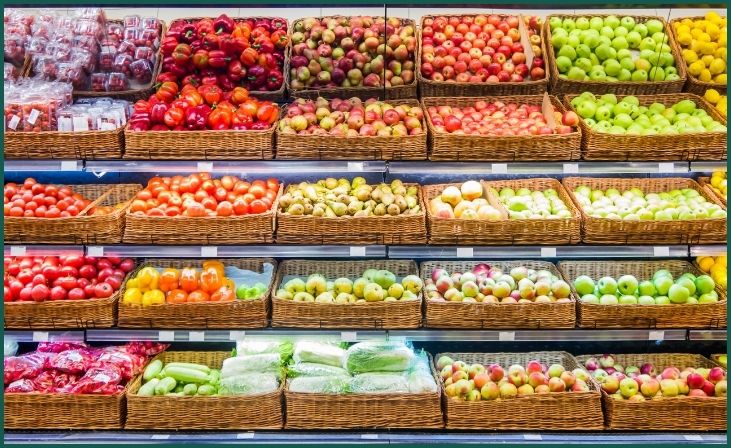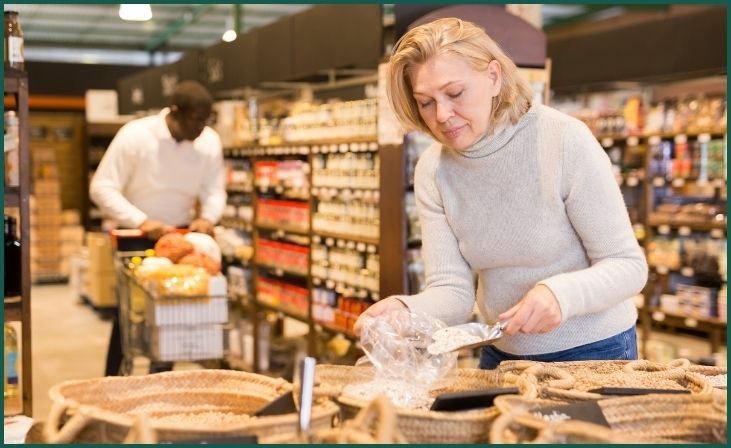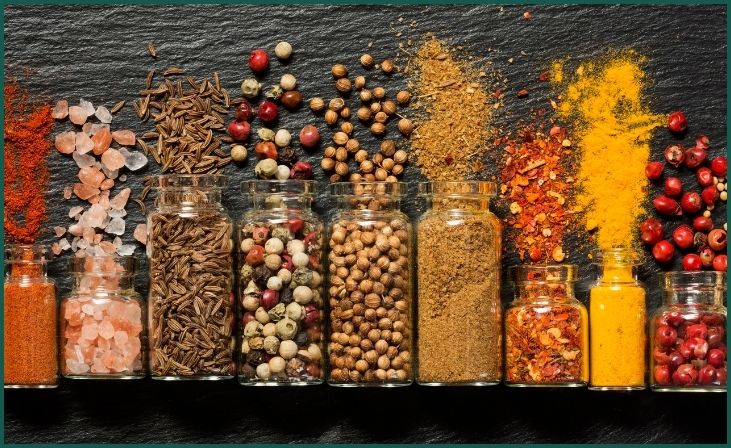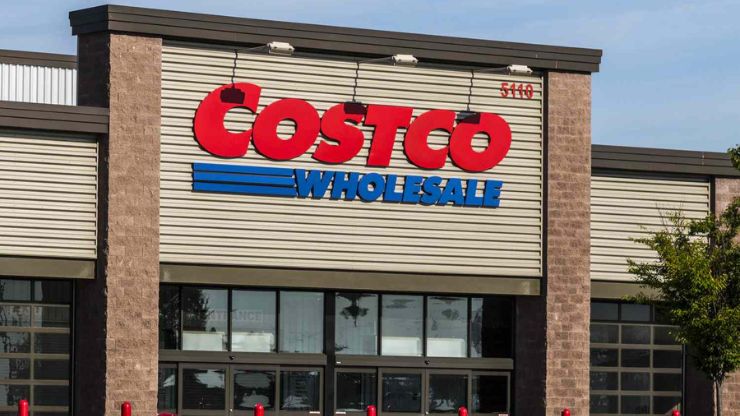Purchasing from Costco is a sacred experience that is distinct from purchasing from any other manufacturer or distributor. You are already familiar with the joy that comes with loading up your extra-large cart, showing off your club card, and cruising through each aisle if you are a customer who is satisfied with your membership. However, even though Costco is essentially a warehouse sanctuary, not every product that they sell is superior. When it comes to feeding a large group of people or large families, purchasing in bulk is a terrific and cost-effective alternative. However, there are a few goods that you would probably be better off purchasing from your neighborhood grocery store.
Table of Contents
ToggleItems You Shouldn’t Buy at Costco
1. Caution with Bulk Purchase of Fresh Produce

When considering fruits and vegetables at Costco, the temptation of bulk quantities can be deceiving. It’s wise to exercise caution with perishable items, as purchasing in large quantities might lead to waste if they cannot be consumed before expiration. While the allure of cost-effectiveness is appealing, it’s essential to assess whether your household can realistically consume the items before they spoil. Planning meals and considering storage capacity can help prevent unnecessary waste and ensure that you make the most of your purchases. So, while the deals may seem enticing, it’s crucial to weigh the practicality of bulk purchases against the risk of food going to waste.
Read Also: 7 Easy-to-Maintain Plants for a Simple Landscape
2. Exception: Costco Rotisserie Chicken
One exception to the rule about avoiding perishable items at Costco is their rotisserie chicken. This beloved item stands out as a smart purchase due to its versatility and the high probability of being consumed before it spoils. Whether used in sandwiches, salads, or as a standalone meal, the Costco rotisserie chicken proves to be a game-changer in meal preparation. Its affordability and convenience make it a popular choice among shoppers looking for quality and value. So, while caution is warranted with most perishable items, the Costco rotisserie chicken offers a reliable option that adds both flavor and convenience to your meals.
3. Limitations on Bulk Bread Purchases

Bulk buying bread at Costco may not always be the best decision unless you’re confident you can consume it before it expires. It’s crucial to be mindful of bread’s shelf life and to have a consumption plan in place. Additionally, consider freezing items like muffins and croissants to prolong their freshness and minimize waste. While purchasing in bulk can be tempting for cost savings, it’s essential to balance that with practicality and ensuring that you don’t end up with more than you can use before it goes bad. By freezing certain items, you can enjoy them over a more extended period while still making the most of Costco’s offerings.
4. Consider Freezing Bakery Items
While advising against bulk bakery purchases, there’s a helpful tip: freezing. Items such as muffins and croissants can be frozen, enabling you to enjoy them at your own pace and preventing unnecessary waste. This simple technique extends the freshness of baked goods, providing flexibility in consumption without compromising quality. So, while it’s important to be cautious with bulk buying, freezing allows you to make the most of bakery purchases from places like Costco, ensuring that nothing goes to waste while still enjoying your favorite treats over time.
Don't just scroll, subscribe!
BuzzTrail's unique web-stories are the cure for boredom you've been waiting for.
5. Challenges with Bulk Flour Purchase
Considering purchasing that 25-pound bag of flour for $11.99? Hold off for a moment. While the apparent savings might be tempting, it could result in wastage. Flour can spoil within a year, making such a bulk purchase impractical unless you’re a frequent baker. It’s essential to assess your baking needs realistically before committing to large quantities. While the price may seem enticing, it’s crucial to consider the potential for waste and whether a smaller quantity would be more suitable for your usage. So, before grabbing that hefty bag, think twice about your baking habits and whether such a bulk purchase aligns with your needs.
Read Also: 7 Best Flowering Plants for Pots
6. Spices and Expiry Concerns

Costco provides substantial savings on spices, but there’s a caveat: expiry dates. While the price may be enticing, it’s essential to evaluate your spice consumption habits. Using spices beyond their expiration dates can affect the flavor of your dishes. Before stocking up, consider how quickly you go through spices and whether purchasing in bulk aligns with your needs. While Costco’s prices are appealing, ensuring that you can use the spices before they expire is key to maintaining the quality of your culinary creations. So, while the savings are significant, be mindful of potential wastage and prioritize freshness in your spice selection.
7. Cooking Oil Shelf Life
Cooking oil is frequently bought in bulk, but it comes with a shelf life limitation. Avoid purchasing double packs of canola or olive oil unless you can utilize them within four months, as advised by the USDA. Despite the allure of cost savings, it’s crucial to prioritize freshness in cooking oil to maintain its quality and flavor. Assess your cooking needs before committing to bulk purchases to ensure that you can use the oil within the recommended timeframe. By doing so, you’ll avoid wastage and ensure that your culinary endeavors benefit from the best-quality ingredients.
8. Evaluate Dairy Purchases

While Costco offers dairy products like cheese in bulk, it’s important to consider your consumption capacity. Purchasing large quantities could result in wastage if you’re unable to consume them before they expire. Despite the potential for cost savings, it’s crucial to assess whether your household can use the cheese within a reasonable timeframe. By being mindful of your consumption habits and storage capabilities, you can avoid unnecessary waste and ensure that you make the most of your purchases. So, before buying in bulk, consider whether you can realistically consume the cheese before it spoils, prioritizing freshness and minimizing waste.
Bottom Line
In conclusion, while Costco offers a wide array of products at competitive prices, there are certain items that may not be the best fit for bulk purchases. Perishable goods like fruits, vegetables, bread, and dairy products require careful consideration of consumption capacity to avoid wastage. Additionally, items with limited shelf lives, such as spices, cooking oil, and flour, should be purchased judiciously to maintain freshness and quality. By being mindful of expiration dates, usage rates, and storage capabilities, consumers can make more informed decisions about their Costco purchases. Ultimately, balancing cost savings with practicality and mindful consumption habits is key to maximizing the benefits of shopping at Costco while minimizing potential waste and unnecessary expenditure.
FAQs
Can I still save money at Costco if I avoid buying perishables in bulk?
Can I still save money at Costco if I avoid buying perishables in bulk?
Yes! Focus on non-perishables or items you can consume before expiry for continued savings.

